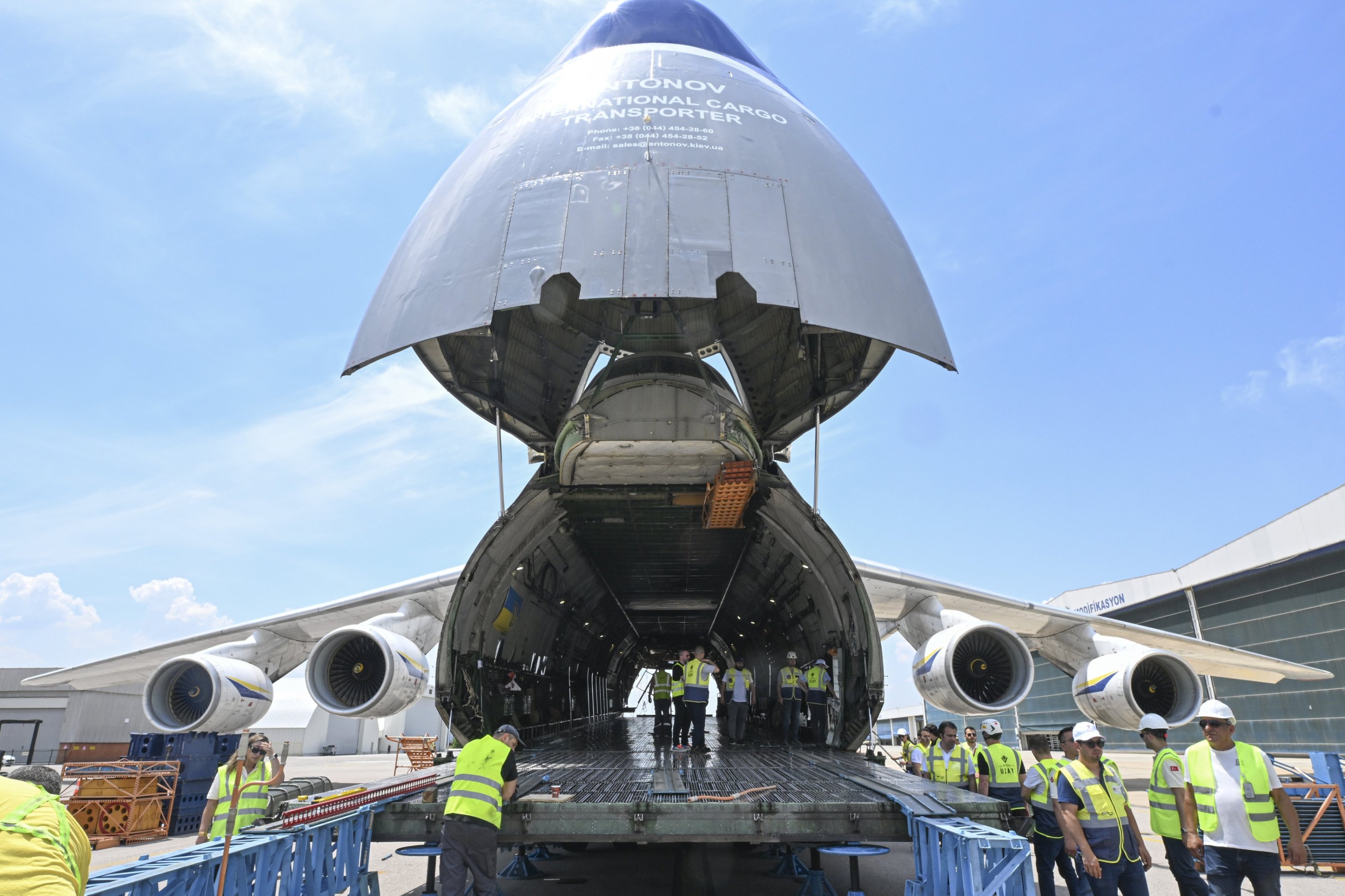© Turkuvaz Haberleşme ve Yayıncılık 2026
Turkish Industry and Technology Minister Mehmet Fatih Kacır held a press conference at the ministry, alongside Türkiye's second astronaut Tuva Cihangir Atasever, who returned home after a "suborbital research flight," and Türkiye's first astronaut Alper Gezeravcı.
Kacır stated that in the coming period, Türkiye will further improve its capacity for scientific research in space through new international collaborations in manned space missions. He emphasized Türkiye's aim to capitalize on space opportunities for advancements in science, technology and competitive products and services.
Highlighting Atasever's successful suborbital research flight, Kacır commended his contribution to Türkiye's pride and history by carrying both the Turkish and Azerbaijani flags in space. Atasever, whose mother is an Azerbaijani, symbolically represented unity with the motto of "One nation, two states." He also raised awareness about the plight of the Palestinian people and the children of Gaza by carrying a keffiyeh, proclaiming their struggles to the world.
Kacır recalled the announcement of the National Space Program, particularly emphasizing the goal of the "Turkish Astronaut and Science Mission." He noted the selection of Gezeravcı, a Turkish Air Forces Command pilot, and Atasever, a former avionics system engineer at ROKETSAN, for this historical space mission. Both astronauts underwent extensive training to represent Türkiye and conduct scientific research in space.
Kacır explained that the successful execution of the first manned science mission by Gezeravcı enabled the second astronaut Atasever to perform a suborbital research flight without incurring any additional cost, as stated in the project agreements, and added: "Atasever's suborbital flight is part of the same mission."
"In the upcoming period, we will further advance our country's capacity for scientific research in space with new international collaborations in manned space missions. In line with our 'National Technology Initiative' vision, we will continue to maximize the opportunities presented by paradigm shifts for our country's technology development capabilities," he added.
"At the beginning of the 21st century, the involvement of private sector companies in this race and the significant decrease in launch costs marked the beginning of the era called 'New Space.' The reduction and democratization of access to space has accelerated work in the space sector and strengthened motivation to take full advantage of the economic opportunities provided by space."

Kacır emphasized that space research lies behind innovative projects in many fields from agriculture to transportation, health to energy.
"For a Türkiye that is assertive in science and technology and offers competitive products and services in high technology fields, we will maximize the opportunities offered by space. We will increase our R&D and innovation competencies in this field and transform our existing competencies into economic value.
"Last week, we sent our domestic and national communication satellite Türksat 6A, the highest-value technological product ever produced in the history of our country, to the launch base. Our satellite will be launched on the week of July 8 after the final controls, we will create our national satellite brand for the strategic security of our country by gathering the competence and infrastructure created in the public sector under a single roof with both our communication satellite Türksat 6A and imaging satellite projects," he outlined.
"We will implement the national production program for low-orbit satellites. We will support public, academic and private sector projects in this field. We will continue to implement the National Space Program with determination and ensure that Türkiye is among the countries that have a say in this field. We will increase our share in the global space economy with the Space Technology Development Zone we will establish in Ankara, the capital of Türkiye, and the steps we will take to further advance our space industry," he added.
Stating that they will further grow Türkiye's space ecosystem, which has flourished in the last 22 years with technology initiatives, research centers and the manufacturing industry, Kacır said that they will continue projects to develop launch rockets and establish a spaceport by 2030 with international cooperation.
Kacır said that they will also carry out the Moon Program, and that they will reach the moon with a spacecraft with a propulsion system developed with national resources, designed and produced by their own engineers and scientists.
Underlining that they will have the most advanced telescope in the region by completing the Eastern Anatolia Observatory project, which they are establishing for advanced space observations under the roof of the National Observatories of Türkiye, Kacır said: "We will strengthen our human resources in space science and technologies through TEKNOFEST, the world's largest aviation, space and technology festival, sky observation festivals, education and entrepreneurship programs. We will continue to increase social interest in the field of space."
"By bringing the achievements we have made in space studies together with our nation, we will ensure that these studies continue to be embraced by the public at the highest level. The interest of our youth in the science missions carried out by our two astronauts shows that Turkish children, the TEKNOFEST generation, will carry out scientific and technological studies that will enable us to look to the future with hope in order to make the second century of our republic the 'Century of Türkiye.'"
"I would like to express my gratitude to our president for erasing the taught and learned helplessness in our country and carrying the dreams of our nation beyond the horizon, to the depths of space, and to our beloved nation for their prayers and support on this path."
